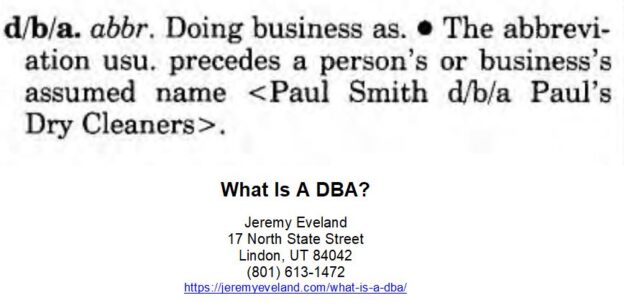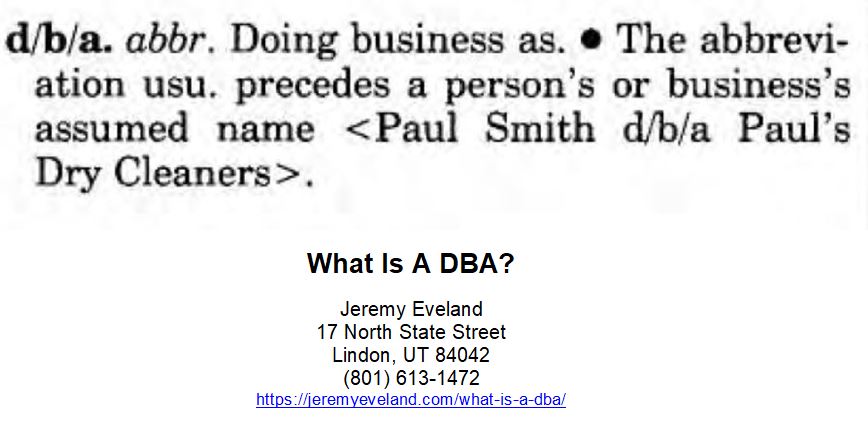Business Succession Lawyer Bountiful Utah
-
Corporate Counsel
- Introduction
- What is Business Succession and Business Law?
- How to Find the Best Business Succession Lawyer in Bountiful UT
- The Benefits of Estate Planning with a Business Succession Lawyer in Bountiful UT
- What to Expect When Working with a Business Succession Lawyer in Bountiful Utah
- How to Choose the Right Business Succession Lawyer for Your Needs
- Understanding the Benefits of Working with a Business Succession Lawyer in Bountiful Utah
- Why you Need a Business Succession Attorney to Help You
- Q&A
“Secure Your Business’s Future with Business Succession Lawyer Bountiful Utah”
Introduction
Business Succession Lawyer Bountiful Utah is a law firm that specializes in helping business owners plan for the future of their business. Our team of experienced attorneys provides comprehensive legal advice and services to help business owners protect their assets and ensure their business’s success. We understand the complexities of business succession planning and can help you create a plan that meets your needs and goals. Whether you are looking to transfer ownership, protect your business from creditors, or plan for the future of your business, our team of experienced attorneys can help. We are committed to providing our clients with the highest quality legal services and advice.
What is Business Succession and Business Law?
How to Find the Best Business Succession Lawyer in Bountiful UT
Finding the best business succession lawyer in Bountiful, UT can be a daunting task. However, with the right research and preparation, you can find the perfect lawyer for your needs. Here are some tips to help you find the best business succession lawyer in Bountiful, UT:
1. Ask for referrals. Talk to other business owners in the area and ask them for referrals to business succession lawyers they have used in the past. This is a great way to get an idea of who is reputable and experienced in the field.
2. Research online. Look for reviews and ratings of business succession lawyers in Bountiful, UT. This will give you an idea of who is highly rated and who may not be the best fit for your needs.
3. Schedule a consultation. Once you have narrowed down your list of potential lawyers, schedule a consultation with each one. This will give you the opportunity to ask questions and get a better understanding of their experience and qualifications.
4. Ask questions. During the consultation, make sure to ask questions about their experience in business succession law, their fees, and any other relevant information. This will help you make an informed decision about who to hire.
By following these tips, you can find the best business succession lawyer in Bountiful, UT for your needs. With the right research and preparation, you can ensure that you are working with a qualified and experienced lawyer who can help you with your business succession needs.
The Benefits of Estate Planning with a Business Succession Lawyer in Bountiful UT
Estate planning is an important part of financial planning for individuals and businesses alike. A business succession lawyer in Bountiful UT can help you create an estate plan that meets your needs and protects your assets. Here are some of the benefits of estate planning with a business succession lawyer in Bountiful UT.
1. Tax Planning: A business succession lawyer in Bountiful UT can help you create an estate plan that minimizes your tax liability. They can help you structure your estate in a way that reduces the amount of taxes you owe and ensures that your heirs receive the maximum benefit from your estate.
2. Asset Protection: A business succession lawyer in Bountiful UT can help you create an estate plan that protects your assets from creditors and other potential liabilities. They can help you create trusts and other legal documents that ensure your assets are protected and passed on to your heirs.
3. Estate Administration: A business succession lawyer in Bountiful UT can help you manage the administration of your estate. They can help you create a will, appoint an executor, and ensure that your wishes are carried out after you pass away.
4. Business Succession Planning: A business succession lawyer in Bountiful UT can help you create a plan for the future of your business. They can help you create a plan for the transfer of ownership and management of your business to ensure that it continues to be successful after you are gone.
Estate planning is an important part of financial planning for individuals and businesses alike. A business succession lawyer in Bountiful UT can help you create an estate plan that meets your needs and protects your assets. With their help, you can ensure that your wishes are carried out after you pass away and that your heirs receive the maximum benefit from your estate.
What to Expect When Working with a Business Succession Lawyer in Bountiful Utah
When working with a business succession lawyer in Bountiful, Utah, you can expect a comprehensive approach to your legal needs. Your lawyer will work with you to understand your business goals and objectives, and will provide you with the legal advice and guidance necessary to ensure that your business succession plan is successful.
Your lawyer will begin by gathering information about your business, including its structure, assets, liabilities, and any other relevant information. This information will be used to create a comprehensive business succession plan that meets your needs and goals. Your lawyer will also review any existing contracts or agreements that may be relevant to your business succession plan.
Once your lawyer has gathered all the necessary information, they will work with you to develop a plan that meets your needs. This plan will include the transfer of ownership, the division of assets, and the distribution of profits. Your lawyer will also provide advice on tax implications and other legal matters related to your business succession plan.
Your lawyer will also provide guidance on the best way to handle any disputes that may arise during the process. They will work with you to ensure that all parties involved are satisfied with the outcome of the business succession plan.
Finally, your lawyer will provide you with ongoing support and advice throughout the process. They will be available to answer any questions you may have and provide guidance as needed.
By working with a business succession lawyer in Bountiful, Utah, you can be sure that your business succession plan is handled in a professional and efficient manner. Your lawyer will provide you with the legal advice and guidance necessary to ensure that your business succession plan is successful.
How to Choose the Right Business Succession Lawyer for Your Needs
When it comes to business succession planning, it is important to choose the right lawyer to ensure that your business is properly protected and that your wishes are carried out. Here are some tips to help you choose the right business succession lawyer for your needs.
1. Research: Before you hire a lawyer, it is important to do your research. Look for lawyers who specialize in business succession law and have experience in the area. Check their credentials and read reviews from past clients to get an idea of their level of expertise.
2. Ask Questions: Once you have identified a few potential lawyers, it is important to ask questions to ensure that they are the right fit for your needs. Ask about their experience in business succession law, their fees, and their approach to the process.
3. Get Referrals: Ask your business contacts and colleagues for referrals to lawyers they have used in the past. This can help you narrow down your search and find a lawyer who is experienced and knowledgeable in the area.
4. Meet in Person: Once you have identified a few potential lawyers, it is important to meet with them in person. This will give you an opportunity to get to know them and ask any additional questions you may have.
By following these tips, you can ensure that you choose the right business succession lawyer for your needs. With the right lawyer, you can rest assured that your business is properly protected and that your wishes are carried out.
Understanding the Benefits of Working with a Business Succession Lawyer in Bountiful Utah
Business succession planning is an important part of any business owner’s long-term strategy. It involves planning for the future of the business, including the transfer of ownership and management of the business to the next generation. Working with a business succession lawyer in Bountiful, Utah can help ensure that the transition is smooth and successful.
A business succession lawyer can provide invaluable guidance and advice to business owners as they plan for the future of their business. They can help business owners understand the legal and financial implications of their succession plan, as well as the tax implications. They can also help business owners create a plan that meets their goals and objectives.
A business succession lawyer can also help business owners understand the various options available to them when it comes to transferring ownership and management of the business. They can help business owners understand the different types of business entities, such as corporations, limited liability companies, and partnerships. They can also help business owners understand the different types of ownership structures, such as sole proprietorships, partnerships, and corporations.
A business succession lawyer can also help business owners understand the different types of estate planning tools available to them. These tools can help business owners protect their assets and ensure that their business is passed on to the next generation in the most efficient and effective manner.
Finally, a business succession lawyer can help business owners understand the different types of legal documents that are necessary to ensure that their succession plan is properly executed. These documents can include wills, trusts, and other legal documents that are necessary to ensure that the business is transferred in accordance with the wishes of the business owner.
Working with a business succession lawyer in Bountiful, Utah can help business owners ensure that their succession plan is successful and that their business is passed on to the next generation in the most efficient and effective manner. By working with a qualified lawyer, business owners can ensure that their business is properly protected and that their succession plan is properly executed.
Why you Need a Business Succession Attorney to Help You
Business succession planning is an important part of any business owner’s long-term strategy. It involves making decisions about the future of the business, such as who will take over the business when the current owner retires or passes away. It is important to have a plan in place to ensure that the business continues to operate smoothly and that the owner’s wishes are respected.
A business succession attorney can help business owners create a plan that meets their needs and protects their interests. An attorney can provide advice on the legal aspects of succession planning, such as the transfer of ownership, the division of assets, and the tax implications of the transition. An attorney can also help business owners create a plan that is tailored to their specific situation and goals.
A business succession attorney can also help business owners navigate the complexities of the legal process. An attorney can help ensure that all documents are properly drafted and filed, and that all legal requirements are met. An attorney can also provide guidance on the best way to structure the transition, such as whether to transfer ownership through a sale or a gift.
Finally, a business succession attorney can provide valuable advice on how to protect the business’s assets and ensure that the owner’s wishes are respected. An attorney can help business owners create a plan that will ensure that the business continues to operate smoothly and that the owner’s wishes are respected.
Having a business succession attorney on your side can help ensure that your business succession plan is successful. An attorney can provide valuable advice and guidance on the legal aspects of succession planning, as well as help you create a plan that meets your needs and protects your interests.
Q&A
1. What is a business succession lawyer?
A business succession lawyer is a legal professional who specializes in helping business owners plan for the future of their business. They can help with the legal aspects of succession planning, such as drafting wills, trusts, and other documents to ensure that the business is passed on to the right people in the event of the owner’s death or disability.
2. What services does a business succession lawyer provide?
A business succession lawyer can provide a variety of services, including helping business owners create a succession plan, drafting wills and trusts, and providing advice on tax and estate planning. They can also help with the transfer of ownership, such as helping to negotiate the sale of the business or helping to transfer ownership to family members.
3. What should I look for in a business succession lawyer?
When looking for a business succession lawyer, it is important to find someone who is experienced in the area of business succession planning. You should also look for someone who is knowledgeable about the laws in your state and who is familiar with the specific needs of your business.
4. How much does a business succession lawyer cost?
The cost of a business succession lawyer will vary depending on the complexity of the case and the services provided. Generally, you can expect to pay anywhere from $150 to $500 per hour for their services.
5. What is the best way to find a business succession lawyer in Bountiful, Utah?
The best way to find a business succession lawyer in Bountiful, Utah is to ask for referrals from friends, family, or colleagues who have used a lawyer in the past. You can also search online for lawyers in the area and read reviews to get an idea of their experience and reputation.
6. What should I expect during my first meeting with a business succession lawyer?
During your first meeting with a business succession lawyer, you should expect to discuss your goals and objectives for the business, as well as any legal issues that may arise. The lawyer will also ask questions about the business and its operations in order to better understand your needs.
7. What documents should I bring to my first meeting with a business succession lawyer?
When meeting with a business succession lawyer, it is important to bring any relevant documents, such as business plans, financial statements, and tax returns. You should also bring any documents related to the ownership of the business, such as deeds, titles, and contracts.
Business Succession Lawyer Bountiful Utah Consultation
When you need legal help from a Business Succession Lawyer Bountiful Utah call Jeremy D. Eveland, MBA, JD (801) 613-1472 for a consultation.
Jeremy Eveland
17 North State Street
Lindon UT 84042
(801) 613-1472
Related Posts
Real Estate Attorneys in Salt Lake City Utah
Business Contract Lawyer Riverton UT
Business Law and Intellectual Property
Commercial Litigation Strategies
Estate Planning Lawyer Salt Lake City Utah
Business Succession Lawyer Bountiful Utah
About Bountiful, Utah
Bountiful is a city in Davis County, Utah. As of the 2010 census, the city population was 42,552, a three percent increase over the 2000 figure of 41,301. The city grew rapidly during the suburb growth of the late 1940s, 1950s, and 1960s and was Davis County's largest city until 1985, when it was surpassed by Layton. Bountiful is Utah's 15th-largest city.
Neighborhoods in Bountiful, Utah
North Ridge, Bountiful Acres, Woodland, Maple Hills, Moss Hill, Forest Park, Mar Vista, Church Heights, Val Verda, Woodland Hills Estates, Star Heights, Woodland Gardens, Artistic, Canyon Crest, Oakhaven Park, A and K, Bountiful 16th Ward, Westwood, Williams West, Bountiful









